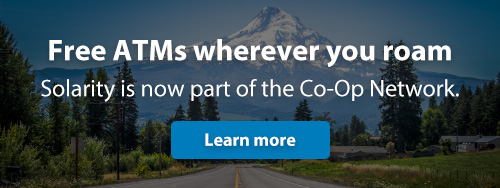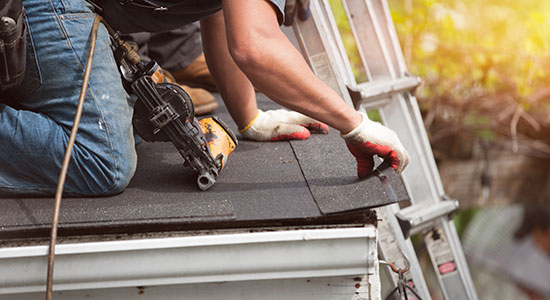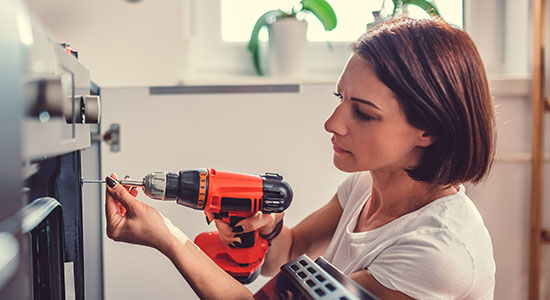
Homeownership is a large part of the American Dream. When picturing their future selves, most people envision their families in a house that they own. This is a great goal to have, but it takes a lot of time and financial planning to be able to afford a mortgage each month. And you can add to that any down payment you make toward the home when purchasing it. With rent payments rising each year and more people understanding the value of home investment, it’s no wonder many people are considering homeownership as the smart next step in their financial journey.
When you own a home, your monthly mortgage payment helps build equity for your financial future. This is a better long-term investment than giving away that potential equity each month to the leasing company that owns your apartment or other rental property.
Homeownership seems like a great financial move, but there is more to the cost of homeownership than the monthly mortgage payments. There are additional costs that many don’t consider when budgeting for their mortgage payments. If you are not aware of these costs before taking the plunge into homeownership, you may not be financially prepared to absorb additional expenses such as private mortgage insurance or HOA fees. The lending experts at Solarity Credit Union have compiled a list of some of the extra costs associated with homeownership so new homeowners can create a more accurate budget for their housing expenses.
Private mortgage insurance
Private mortgage insurance (PMI) is one of the costs of which first-time homebuyers may be unaware, and it can add either an up-front cost at the time of closing, or it can be added to the monthly mortgage payment. PMI is an insurance policy that covers the lender if the borrower is unable to pay back their mortgage. Typically, if you obtain a conventional mortgage and put less than 20% down toward the cost of the home, you will likely be required to pay PMI.
Private mortgage insurance costs can vary, and lenders often provide a few different ways you can pay your PMI. In addition to an up-front cost at closing or including PMI with the monthly payments, sometimes there is a third option, which is both paying some up front and in your monthly mortgage payments. It’s always a good idea to ask your lender which options are available so you can pick what works best for your financial situation.
Homeowner’s insurance
Most homeowners expect to pay a monthly fee for homeowner’s insurance; however, what may come as a surprise is that not everything is covered by a standard homeowner’s insurance plan. For example, acts of God are not included in homeowner’s insurance plans without paying extra for coverage, so if your house gets damaged in a storm, such as a hurricane, hail or tornado, you are on your own to financially cover any necessary repairs. Flooding is also not covered and can be quite costly to add to a homeowner’s insurance plan, especially if your home is located in a flood zone, such as by a river or stream.
Homeowner’s association (HOA) fees
If you purchase a home located in a neighborhood with a homeowner’s association, you will likely be required to pay monthly HOA fees to cover the costs associated with maintaining your HOA. This can be an unexpected extra cost if you were unaware of this requirement when budgeting solely for the monthly mortgage payment.
HOA fees cover the cost of features offered to the whole neighborhood, such as garbage removal, snow plowing and projects to improve the neighborhood (for example, parking lot paving or maintaining common areas for everyone’s use). These fees can be costly and, if unexpected, can be a financial strain for those who don’t plan for them in their budgets. It’s always a good idea to check with your real estate agent to find out if there is an HOA fee for the house you are considering before making the leap to purchase.
Property taxes
When you buy a home, you must pay annual property taxes on the home. The cost of the property tax can vary wildly depending on where your home is located and the dollar value of your home. Your local government sets the percentage rate for your property tax, and this can change from year to year. Property taxes can cost anywhere from $500 to $1,000 or more a month and can be a shock at tax time to those who are unaware of the financial requirements of their new homes. It’s good practice to set aside money monthly for your taxes so you aren’t hit with a huge expense that you are unprepared to pay at tax time.
Escrow payments
Many lenders will include the cost of property taxes in the monthly mortgage payments and will hold that part of your monthly payment in a bank account called an escrow account, which is then used to make the property tax payments on your behalf. Homeowner’s insurance can also be wrapped into the mortgage and paid from your escrow account.
Home repairs and maintenance
With a new home comes the added expense of home repairs and maintenance. If you have been renting up until this point and your landlord covered all repair costs for your apartment, you may not have considered the high cost of maintenance that goes into homeownership. This cost can fluctuate significantly from year to year, based on what repairs may be needed, from minor repairs to large, costly repairs, such as replacing your roof. It is always a good idea to have savings set aside to cover repairs as a new homeowner.
You can discuss your mortgage options and any potential extra expenses with experienced lenders. Contact the Home Loan Guides at Solarity Credit Union today. We’ll help you look ahead so you can plan your budget for homeownership.What's your Solarity story?
We're on a mission to tell the stories of our members and how they are living their best lives. Do you have a Solarity story to share?



